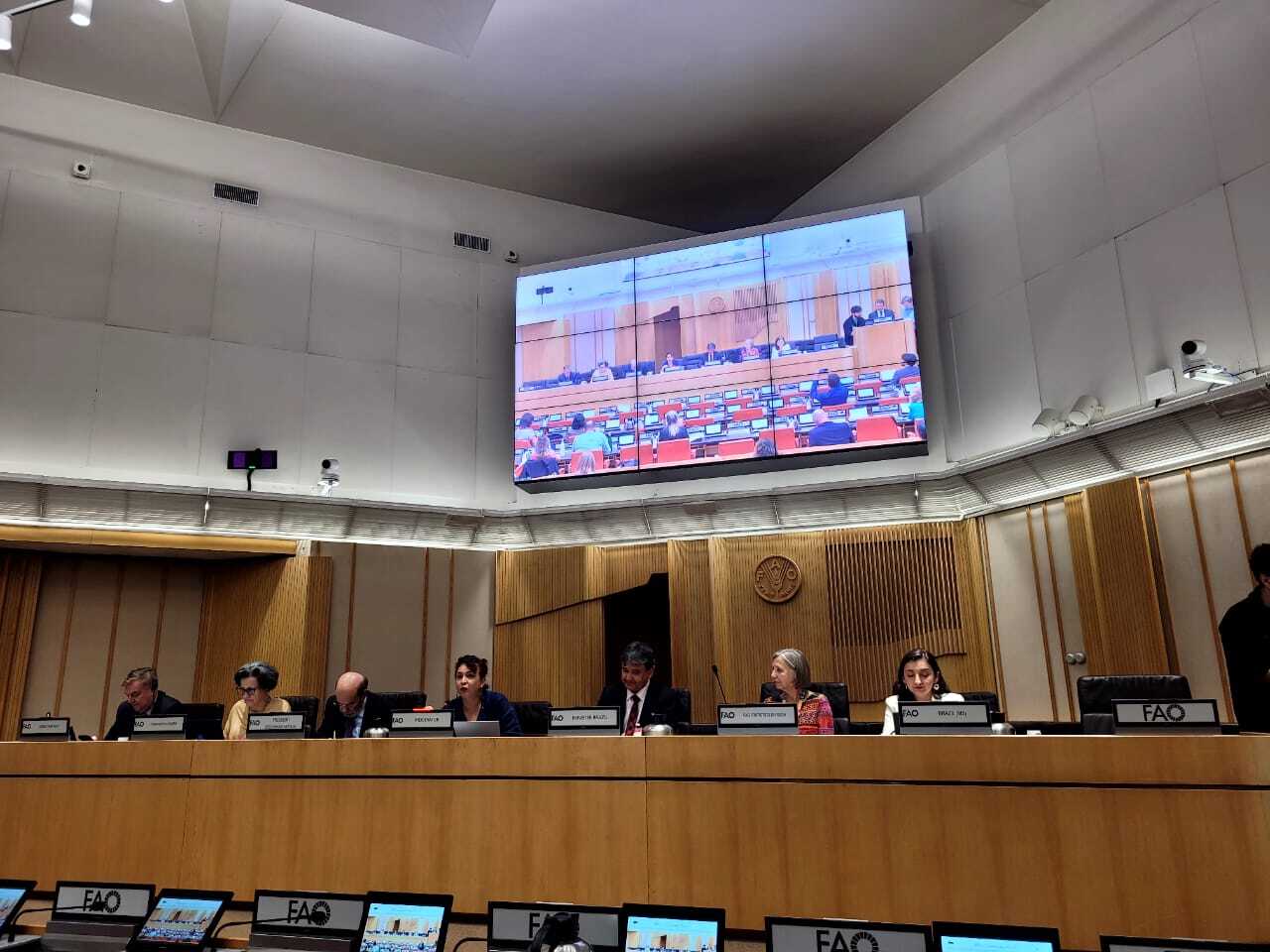
On Tuesday 24 October, Brazil hosted, during the 51st meeting of the Committee on World Food Security (CFS), a panel discussion on “Lessons from Brazil – Recovering from setbacks in the fight against hunger and malnutrition and the challenges ahead”. The event provided an insight into Brazil’s experience with school feeding as an essential tool for overcoming hunger and malnutrition in the country.
The event was attended by representatives of the World Food Programme (WFP) Centre of Excellence against Hunger in Brazil, the Brazilian Ministries of Social Development and Health, FAO and the Zero Hunger Institute. During the presentations, lessons were shared from Brazil’s strategies to fight hunger and new research on the multiple burden of malnutrition.
Over the past two decades, a series of policies and governance structures have been implemented in Brazil, including the Zero Hunger programme, programmes to support family farming and educational programmes to promote health, such as the National School Feeding Programme (PNAE). In addition, mechanisms have been created to promote adequate and healthy food in public environments and to strengthen primary health care.
“It is no longer possible for us to accept a situation like this [hunger]. It’s very important that we get back to working with international cooperation to tackle this challenge,” said Daniel Balaban, Director of the WFP Centre of Excellence. An example of an important South-South cooperation initiative working on this issue is the Centre of Excellence’s Nurture the Future project.
The project, which is the result of a partnership between the Ministry of Health, the Centre of Excellence and the Brazilian Cooperation Agency of the Ministry of Foreign Affairs, promotes the exchange of experiences between Brazil, Colombia and Peru on strategies to tackle the multiple burden of malnutrition.
The exchange of knowledge, with a special focus on tackling childhood obesity and overweight, aims to support the strengthening of national public institutions and the nutrition and health sectors, which are considered essential pillars for the administration of food and nutrition policies in partner nations. Find out more about the project.




